ashleyp
Active Member
Hi all,
Firstly I'd like to start with a brief trigger warning. I know full well of the stressors and anxieties that come living with Type 1 Diabetes and for most what I'm about to speak about will never become a reality. So if you'd like to keep your mind clear of what could happen, then I'd recommend leaving it here - we already have enough to deal with!
There is a moral to this story and I'll put it here too in case you don't want to read on:
If you are lucky enough to have access to a CGM with alarms, do not turn off your low alarm, no matter how annoying it is throughout the night!
Now, onto the juicy stuff...
A quick bit of data for reference - 33yo male, diagnosed type 1 in 2012 at age 21, controlled by insulin injections (fiasp/tresiba) with libre 2 sensor.
On Saturday October 19th I was enjoying a weekend away in the Cotswolds with family sharing a large airbnb to explore Bourton-on-the-water and Jeremy Clarksons Hawkstone brewery. A completely normal Saturday with nothing out of the ordinary - breakfast at Daylesford Farm, a few pints at the brewery, dinner in a nice pub and then back to the airbnb for some games around the fire.
That evening we went to bed around 11pm. At 1am my partner was awoken by me fitting in the bed next to her. Whilst fitting she said she heard what she can only describe as someone breaking 2 pieces of wood over their knee. We'd later find out that this was both of my shoulders dislocating and the bones breaking simultaneously.
Having been together for 9 years now she's well aware of hypos and was quick to get glucose syrup into my mouth once I had stopped fitting. She checked my libre and recorded a reading of 2.9. This was however the first time I'd ever had a seizure in my life but as a previous carer she was experienced with tonic clonic seizures. After a few minutes I had regained consciousness and as I "returned to the room" I was immediately aware that something was very wrong. Both arms were in unimaginable pain and I couldn't move them.
Fortunately my entire family were with us in the airbnb and supported my partner with getting me some help. My brother called for an ambulance which eventually arrived after 4 hours. Yep, 4 hours with both shoulders very much out of their sockets with no pain relief. That part was just excellent! They eventually arrived and got the morphine pumping which I quickly learnt makes me projectile vomit shortly after administration which made the 40 minute ambulance journey to A&E more comical than it should have been.
Shortly after I arrive at Gloucester Royal, 150 miles away from home, I'm sedated and have both my shoulders relocated. Well actually I don't, because they couldn't get the bloody things back in, so off to theatre I go for a second and thankfully successful attempt. I then wake up on a ward and am told that unfortunately both shoulders were broken from the impact of the dislocation.
For those that want the details - my left shoulder dislocated anteriorly and had an avulsion fracture of the Greater tuberosity. My right shoulder dislocated posteriorly and had an avulsion fracture of the lesser tuberosity. This is exceptionally rare and is really only seen as a result of seizures or electrocution. Unfortunately for me the majority of this damage was caused by my build - I have weight trained (bodybuilding/powerlifting) for over 15 years and was 16 stone and muscular. From all the years of training my tendons were extra strong and thick. In any normal case the tendons of the rotator cuff muscles would've just snapped but mine remained firmly in place, ripping the bone off of itself instead.
Skip ahead 3 weeks and I'm back home (and after an argument with the first surgeon I was assigned who genuinely wanted to do nothing but advise physiotherapy and suggest I just deal with being partially disabled for the rest of my life) had been granted surgery on both shoulders to repair them following a second opinion. I had open reduction internal fixation of the proximal humerus on both sides to reattach the broken bone and the rotator cuff tendons to which pulled them apart! Following a successful 6-hour surgery I am now part-man, part-mecano with some impressive metal work/screws in each shoulder with a lengthy 12-month recovery process of mobility and strengthening work in the hope of regaining 80-90% of my original strength and range of motion back.
I've attached some pre and post op xrays for your viewing pleasure!
Recovery so far has been the most challenging thing I've ever had to endure in my life but I am making progress and doing everything I can, from supplementation to 90 mins of physio every day, to keep me going. It's been hard to sleep, I have been completely disabled for weeks with both arms immobilised and luckily had a partner willing to wash and dress me (and the rest!) but as I approach 8-weeks post surgery I'm slowly returning back to some form of "normality". The hardest part for me has been watching all of thay hard earned muscle on my upper body just disappear, and not being able to get in the gym to throw some weights around as I have done for 15 years to depressurise my brain.
The biggest question I imagine most of you who've made it this far is - well how the hell did this happen? And unfortunately this is one of those really annoying stories that doesn't have an answer. Despite this, I feel all of it could've been avoided entirely if I hadn't of turned off my libre low alarm before going to bed. Rookie error clearly and something I'll never do again, and would advise you to do the same!
I think its easy for others to judge but when you've lived with this for some time you learn patterns and how your body works. It's very common for me to dip a little low around bed time for my body to continue digesting food overnight and rise back up to where it needs to be. Unfortunately on this occasion I was wrong and paid the price. Interestingly the lowest recorded reading that evening just before the seizure event was 2.9. I say its interesting because I've had hypos lower than that before that have never resulted in something remotely close to this.
I've been told by my diabetes team that hypoglycemic seizures are a bit of a medical anomaly with no real warnings or indications. I appreciate that what I've experienced is exceptionally unlucky and rare, and that it will (fingers crossed) never happen to me again, or anyone else for that matter.
I haven't been able to find a huge amount about them online and would really appreciate anyone else reading this who has experienced similar to share with me your experiences. I'd also welcome any advice on what to do from a DVLA point of view. Their website (from what I can decipher through the legal wording) and the Diabetes UK website state that you do not need to inform them of a seizure caused by a nocturnal hypo. Contradictory all consultants I've seen at the hospital have told me to speak to the DVLA as I've had a seizure!
I will attach to this post my libre data from the 48 hours pre and post seizure for info. Again, this is a pretty normal looking day for me with a few short hypos sprinkled in throughout. From a diabetes management perspective I have always had a mild phobia of running high and experience hypos regularly, completely unintentionally of course but a by product of trying to keep things as tight as possible. I know this isn't good enough and am working with the Diabetes team to potentially move over to a closed loop pump system to improve this.
I'm certainly not here looking for sympathy, I've had more than enough of that now to last me a lifetime, bur more as a warning and hopefully something you can think about moving forward. Who knows, perhaps if I had seen a post similar to this I would've thought twice before turning of the alarm?
Feel free to ask any questions if you have them and thank you if you've made it this far!
Thanks for listening to my Ted Talk,
A.
Firstly I'd like to start with a brief trigger warning. I know full well of the stressors and anxieties that come living with Type 1 Diabetes and for most what I'm about to speak about will never become a reality. So if you'd like to keep your mind clear of what could happen, then I'd recommend leaving it here - we already have enough to deal with!
There is a moral to this story and I'll put it here too in case you don't want to read on:
If you are lucky enough to have access to a CGM with alarms, do not turn off your low alarm, no matter how annoying it is throughout the night!
Now, onto the juicy stuff...
A quick bit of data for reference - 33yo male, diagnosed type 1 in 2012 at age 21, controlled by insulin injections (fiasp/tresiba) with libre 2 sensor.
On Saturday October 19th I was enjoying a weekend away in the Cotswolds with family sharing a large airbnb to explore Bourton-on-the-water and Jeremy Clarksons Hawkstone brewery. A completely normal Saturday with nothing out of the ordinary - breakfast at Daylesford Farm, a few pints at the brewery, dinner in a nice pub and then back to the airbnb for some games around the fire.
That evening we went to bed around 11pm. At 1am my partner was awoken by me fitting in the bed next to her. Whilst fitting she said she heard what she can only describe as someone breaking 2 pieces of wood over their knee. We'd later find out that this was both of my shoulders dislocating and the bones breaking simultaneously.
Having been together for 9 years now she's well aware of hypos and was quick to get glucose syrup into my mouth once I had stopped fitting. She checked my libre and recorded a reading of 2.9. This was however the first time I'd ever had a seizure in my life but as a previous carer she was experienced with tonic clonic seizures. After a few minutes I had regained consciousness and as I "returned to the room" I was immediately aware that something was very wrong. Both arms were in unimaginable pain and I couldn't move them.
Fortunately my entire family were with us in the airbnb and supported my partner with getting me some help. My brother called for an ambulance which eventually arrived after 4 hours. Yep, 4 hours with both shoulders very much out of their sockets with no pain relief. That part was just excellent! They eventually arrived and got the morphine pumping which I quickly learnt makes me projectile vomit shortly after administration which made the 40 minute ambulance journey to A&E more comical than it should have been.
Shortly after I arrive at Gloucester Royal, 150 miles away from home, I'm sedated and have both my shoulders relocated. Well actually I don't, because they couldn't get the bloody things back in, so off to theatre I go for a second and thankfully successful attempt. I then wake up on a ward and am told that unfortunately both shoulders were broken from the impact of the dislocation.
For those that want the details - my left shoulder dislocated anteriorly and had an avulsion fracture of the Greater tuberosity. My right shoulder dislocated posteriorly and had an avulsion fracture of the lesser tuberosity. This is exceptionally rare and is really only seen as a result of seizures or electrocution. Unfortunately for me the majority of this damage was caused by my build - I have weight trained (bodybuilding/powerlifting) for over 15 years and was 16 stone and muscular. From all the years of training my tendons were extra strong and thick. In any normal case the tendons of the rotator cuff muscles would've just snapped but mine remained firmly in place, ripping the bone off of itself instead.
Skip ahead 3 weeks and I'm back home (and after an argument with the first surgeon I was assigned who genuinely wanted to do nothing but advise physiotherapy and suggest I just deal with being partially disabled for the rest of my life) had been granted surgery on both shoulders to repair them following a second opinion. I had open reduction internal fixation of the proximal humerus on both sides to reattach the broken bone and the rotator cuff tendons to which pulled them apart! Following a successful 6-hour surgery I am now part-man, part-mecano with some impressive metal work/screws in each shoulder with a lengthy 12-month recovery process of mobility and strengthening work in the hope of regaining 80-90% of my original strength and range of motion back.
I've attached some pre and post op xrays for your viewing pleasure!
Recovery so far has been the most challenging thing I've ever had to endure in my life but I am making progress and doing everything I can, from supplementation to 90 mins of physio every day, to keep me going. It's been hard to sleep, I have been completely disabled for weeks with both arms immobilised and luckily had a partner willing to wash and dress me (and the rest!) but as I approach 8-weeks post surgery I'm slowly returning back to some form of "normality". The hardest part for me has been watching all of thay hard earned muscle on my upper body just disappear, and not being able to get in the gym to throw some weights around as I have done for 15 years to depressurise my brain.
The biggest question I imagine most of you who've made it this far is - well how the hell did this happen? And unfortunately this is one of those really annoying stories that doesn't have an answer. Despite this, I feel all of it could've been avoided entirely if I hadn't of turned off my libre low alarm before going to bed. Rookie error clearly and something I'll never do again, and would advise you to do the same!
I think its easy for others to judge but when you've lived with this for some time you learn patterns and how your body works. It's very common for me to dip a little low around bed time for my body to continue digesting food overnight and rise back up to where it needs to be. Unfortunately on this occasion I was wrong and paid the price. Interestingly the lowest recorded reading that evening just before the seizure event was 2.9. I say its interesting because I've had hypos lower than that before that have never resulted in something remotely close to this.
I've been told by my diabetes team that hypoglycemic seizures are a bit of a medical anomaly with no real warnings or indications. I appreciate that what I've experienced is exceptionally unlucky and rare, and that it will (fingers crossed) never happen to me again, or anyone else for that matter.
I haven't been able to find a huge amount about them online and would really appreciate anyone else reading this who has experienced similar to share with me your experiences. I'd also welcome any advice on what to do from a DVLA point of view. Their website (from what I can decipher through the legal wording) and the Diabetes UK website state that you do not need to inform them of a seizure caused by a nocturnal hypo. Contradictory all consultants I've seen at the hospital have told me to speak to the DVLA as I've had a seizure!
I will attach to this post my libre data from the 48 hours pre and post seizure for info. Again, this is a pretty normal looking day for me with a few short hypos sprinkled in throughout. From a diabetes management perspective I have always had a mild phobia of running high and experience hypos regularly, completely unintentionally of course but a by product of trying to keep things as tight as possible. I know this isn't good enough and am working with the Diabetes team to potentially move over to a closed loop pump system to improve this.
I'm certainly not here looking for sympathy, I've had more than enough of that now to last me a lifetime, bur more as a warning and hopefully something you can think about moving forward. Who knows, perhaps if I had seen a post similar to this I would've thought twice before turning of the alarm?
Feel free to ask any questions if you have them and thank you if you've made it this far!
Thanks for listening to my Ted Talk,
A.
Attachments
-
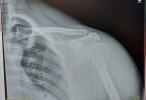 20250102_111541-min.jpg1.6 MB · Views: 134
20250102_111541-min.jpg1.6 MB · Views: 134 -
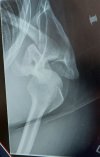 20250102_111604-min.jpg1.6 MB · Views: 128
20250102_111604-min.jpg1.6 MB · Views: 128 -
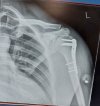 20250102_111645-min.jpg1,021.5 KB · Views: 112
20250102_111645-min.jpg1,021.5 KB · Views: 112 -
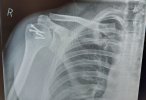 20250102_111722-min.jpg1.8 MB · Views: 129
20250102_111722-min.jpg1.8 MB · Views: 129 -
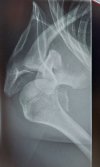 20250102_111615-min.jpg1.4 MB · Views: 143
20250102_111615-min.jpg1.4 MB · Views: 143 -
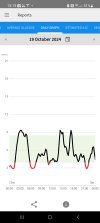 Screenshot_20250102_151953.jpg236.5 KB · Views: 123
Screenshot_20250102_151953.jpg236.5 KB · Views: 123 -
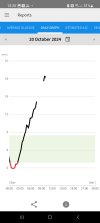 Screenshot_20250102_152009.jpg187.2 KB · Views: 138
Screenshot_20250102_152009.jpg187.2 KB · Views: 138

